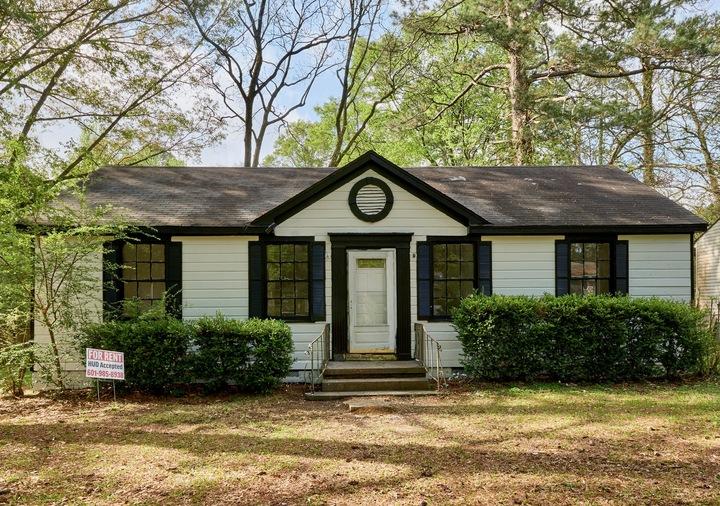Understanding How the Tax Lien Bidding Process Works
Main Points
It’s common for new investors to wonder, “How does the tax lien bidding process work?” The concept can seem complicated at first, especially when trying to understand how interest rates are determined and why they can drop during an auction.
The bidding process is one of the easiest places for new investors to slip up. Every state has its own rules, and it’s easy to get caught up in the moment and bid so aggressively that the deal no longer makes financial sense.
To succeed with tax lien certificates, it’s essential to understand how the bidding process works, where it takes place, and how tax deeds may offer a better fit if your goal is to acquire property rather than simply earn interest.

Why There Is a Bidding Process in the First Place
Tax lien certificates exist because property owners fail to pay their taxes. Counties rely on those taxes to fund schools, police, fire departments, and public works. Instead of waiting years for delinquent owners to catch up, counties sell the tax debt as certificates to investors.
As an investor, when you purchase a tax lien certificate, you’re essentially paying the delinquent taxes that the property owner owes to the county. In return, you receive a lien: a legal claim on the property for the amount of taxes owed. If the property owner redeems (pays back their taxes), you get your money back plus interest.
Here’s where the bidding comes in: often, there are multiple investors competing for the same lien. To determine who gets it, counties use a variety of bidding systems.
The Most Common Bidding Methods
Bid Down the Interest Rate – The auction starts at the maximum interest rate set by the state legislature. Investors bid down the rate until there are no more bids. (Used in states like Florida and Arizona.)
Premium Bidding – Investors bid above the amount of taxes owed. The extra amount, called a premium, effectively lowers the net interest rate. (Used in states like New Jersey and Indiana.)
Random Selection / Rotation – When multiple investors want the same lien, the county randomly assigns it or rotates among bidders. (Used in states like Nebraska, Iowa, and Illinois.)
Bid Down the Ownership (Penalty Bid) – The auction starts with 100% potential ownership if the lien is not redeemed, and investors bid down the percentage they are willing to accept. (Used in Louisiana.)
What Happens If The Property Owner Doesn’t Redeem?
So what happens if the property owner doesn’t pay their back property taxes within the redemption period? In that case, the county may begin the process of foreclosing on the property and eventually transfer ownership through a tax deed sale.
This is where investors have the opportunity to acquire real property rather than just earn interest, often for the amount of back taxes and penalties owed.
However, it’s important to note that this outcome is extremely rare through the tax lien certificate process. In most cases, property owners eventually redeem their liens to keep their homes, meaning investors collect interest but never obtain the property itself.
If your goal is to own physical real estate rather than wait on redemptions, focusing on tax deed investing is the more direct path. Tax deeds allow investors to purchase properties outright, often at a fraction of their market value, without relying on the uncertain redemption process.
And while many investors assume all tax deed properties are sold at competitive auctions, that’s not always the case.

How Can You Obtain Property Without Bidding?
Many investors don’t realize that not all liens and deeds offered at auction are purchased. In fact, thousands of properties go unsold every year.
When this happens, counties often transfer them to special Over-the-Counter (OTC) lists where investors can purchase directly, without competing in a bidding war.
This creates a unique opportunity: you can step in and acquire properties for the amount of back taxes and penalties owed, free and clear of mortgages. By focusing on these overlooked properties, you bypass the intense competition of auctions and gain access to real estate at a fraction of market value.
This is true for tax liens and tax deeds. Many markets make unsold liens available over the counter as well, for the full interest rate.
At USTLA, we specialize in showing our students how to find these hidden deals, conduct thorough and proper due diligence, and take title to the property for the price of back taxes, penalties, and interest.
While tax liens are excellent for earning high, fixed, and secured interest, most investors are ultimately interested in acquiring real estate itself. That’s where tax deeds come in. Through our Over-the-Counter (OTC) Tax Deed Strategy, you can:
Avoid competing at auction altogether
Buy properties directly from the county
Acquire them free and clear with no mortgage
Often, complete the entire process from home
We have a great example from one of our students who purchased a property for only $5,400 in delinquent taxes; no auction, no competition.
187 Treehaven; Acquisition Price: $5,440

With tax liens, you grow your wealth through secure, interest-based income; but with tax deeds, you build long-term wealth by owning property at significant discounts, with the potential to profit from selling, renting, or holding those properties for appreciation.
From Interest Income to Real Estate Ownership
The most important thing to discern in the beginning is whether your objective is fixed, secured interest or acquiring valuable property for a fraction of the fair market value… or both.
That’s why we also teach tax deed strategies, including our Over-the-Counter (OTC) Tax Deed System, which allows investors to skip the auction and competitive bidding process altogether. Instead of compromising your returns or driving up your premiums, you can purchase properties directly from counties for the back taxes and penalties owed, free and clear with no mortgage.
With tax liens, you earn fixed, secured, double-digit returns. With tax deeds, you position yourself to build a portfolio of equity-rich properties at massive discounts. Together, these strategies provide a complete wealth-building system.
At USTLA, we teach you how to navigate both with confidence. If you’re ready to learn more today, start with our Free 3-Module Online Video Crash Course.
USTLA's FREE Comprehensive
3-Module Tax Lien Investment
Online Crash Crouse
The ultimate beginner's guide to successful tax lien
certificate & tax deed investing.
Start Learning from the Comfort of Your Home Today
Featured Lessons
Vital Information Beginner’s MUST KNOW FIRST so you can Get Started Right

Lesson #1
What is Tax Lien Investing & How Can it Help You Achieve Financial Freedom

Lesson #2
How to Acquire Properties for the Back Taxes & Penalties Only

Lesson #3
How Much Investment Capital is Needed to Get Started?
As with all investments, there is always an element of risk. Even if the interest rates are written into state government law, mandated by state government law, and are regulated by state government law, there is a chance of you losing part or all of your investment. You must always try to get the best education and practice safe investing, no matter which investment vehicle you choose.

